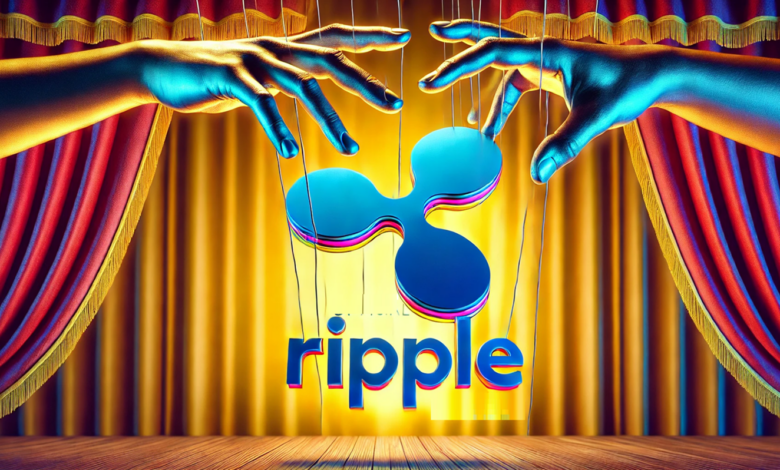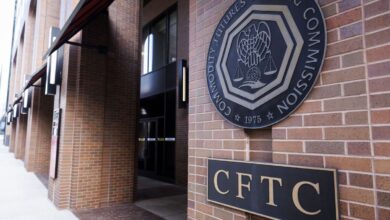
XRP Ledger: Centralization Concerns and Industry Reactions
In a post on the social media platform X, Justin Bons, the Founder and Chief Investment Officer of Cyber Capital, Europe’s pioneering cryptocurrency investment fund, challenges the decentralization claims made by Ripple executives regarding the XRP Ledger (XRPL). Bons accuses the XRP Foundation of misleading the public about the network’s decentralization, asserting that it is, in fact, centralized and permissioned.
Analyzing XRP’s Centralization
According to Bons, “Ripple operates a centralized and permissioned network, contrary to its executives’ assertions. The XRP Foundation misleads investors by falsely promoting decentralization while maintaining full control over the network. This misrepresentation constitutes fraud.” Bons highlights the reliance on Unique Node Lists (UNLs) for consensus, which are controlled lists of trusted nodes managed by singular entities like the XRP Foundation. This structure, he argues, resembles a Proof of Authority (PoA) model rather than decentralized methods like Proof of Stake (PoS) or Proof of Work (PoW).
Trust Versus Trustlessness
Bons further critiques the XRPL’s reliance on trust. While users can customize their UNLs and choose whom to trust, this does not equate to a trustless system, which is a hallmark of genuinely decentralized cryptocurrencies. He stresses, “True decentralization requires a trustless system where no trust is needed. Choosing who to trust isn’t the same as being trustless.”
The Need for Overlap and Permission
A critical aspect of Bons’s argument is that a 90% overlap is required between a user’s UNL and the network to avoid disconnection, a feature that limits decentralization. He argues that direct permission from the XRP Foundation is necessary to partake in consensus, which contradicts the principles of blockchain decentralization.
Historical Context of UNLs
Bons delves into the historical aspects of the XRPL, noting the long-standing existence of only one UNL, the default UNL (dUNL), managed by the foundation. This centralization is further reinforced by the dynamic nature of validator lists, which can be altered by the foundation at any time, demonstrating centralized control.
Lack of Incentives and Control
Another point of contention is the absence of incentives, such as block rewards found in PoW or PoS systems, within XRPL. Bons explains that without these incentives, disparate parties cannot coordinate effectively, leaving de facto total control with the foundation. He notes that all UNLs contain identical validator sets, further demonstrating the foundation’s control over the network.
Potential for Censorship
The centralization and control maintained by the foundation, according to Bons, could enable censorship if necessary. He warns that this level of control is contrary to the fundamental principles of cryptocurrencies, where decentralization and resistance to censorship are vital.
Historical Distribution Concerns
Reflecting on the distribution of XRP, Bons highlights a “shocking pre-mine of 99.8%,” describing it as one of the most unfair distributions in cryptocurrency history. He emphasizes that since no new coins are created, all circulating XRP is acquired from the founders.
Proposed Solutions
Bons suggests that the solution lies in integrating a Proof of Stake mechanism to replace the current UNL system, thereby enhancing decentralization. “Rather than pretending XRP is permissionless, the real solution is to add PoS, transforming XRP into a more conventional decentralized blockchain,” he proposes.
Community Reactions
The community’s response to Bons’s assertions was swift and filled with strong opinions. Panos Mekras, Co-founder of Anodos Finance, defended Ripple and the XRP Ledger, asserting that XRP and Ripple are separate entities and emphasizing the decentralized nature of the ledger with hundreds of validators worldwide. Mekras challenged Bons’s perspective, urging him to accept the facts or risk appearing delusional.
Another user, Krippenreiter, simply noted that Ripple is a company, implying Bons’s argument conflates company operations with the decentralized nature of XRP.
As of the latest update, Ripple Labs and its founders have not publicly addressed Bons’s claims. Meanwhile, XRP is currently trading at $2.55.
“`







